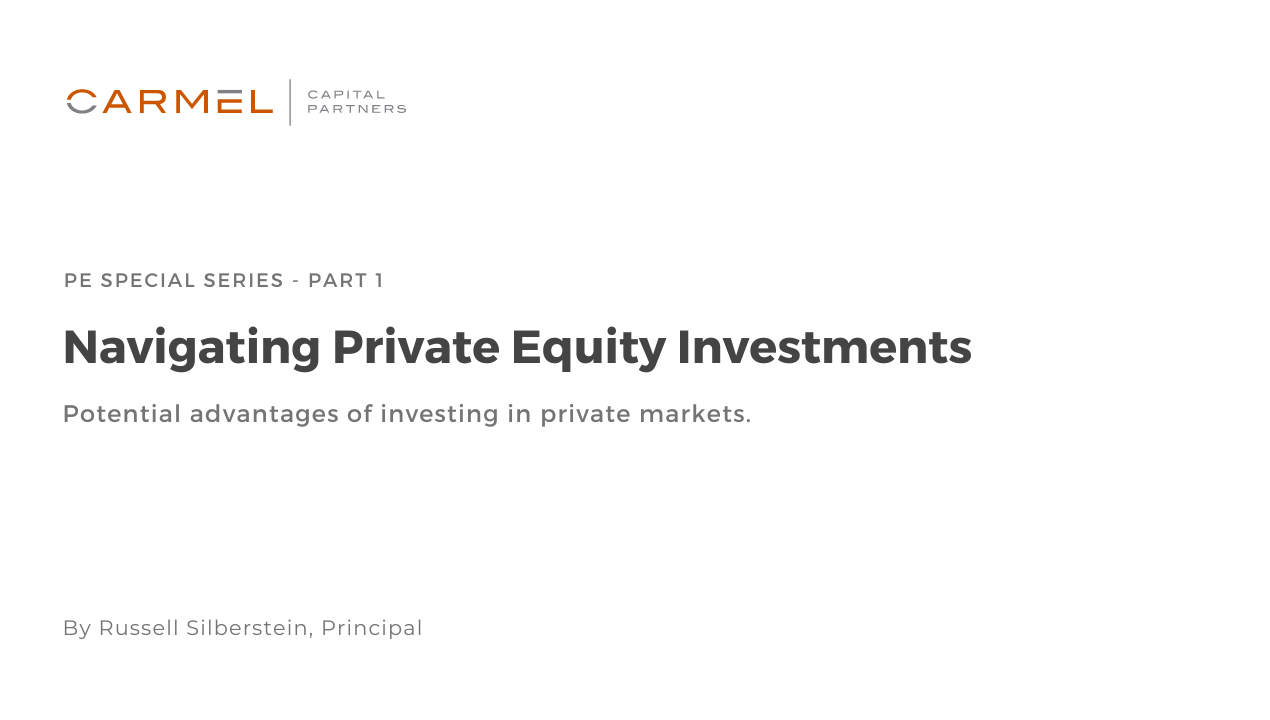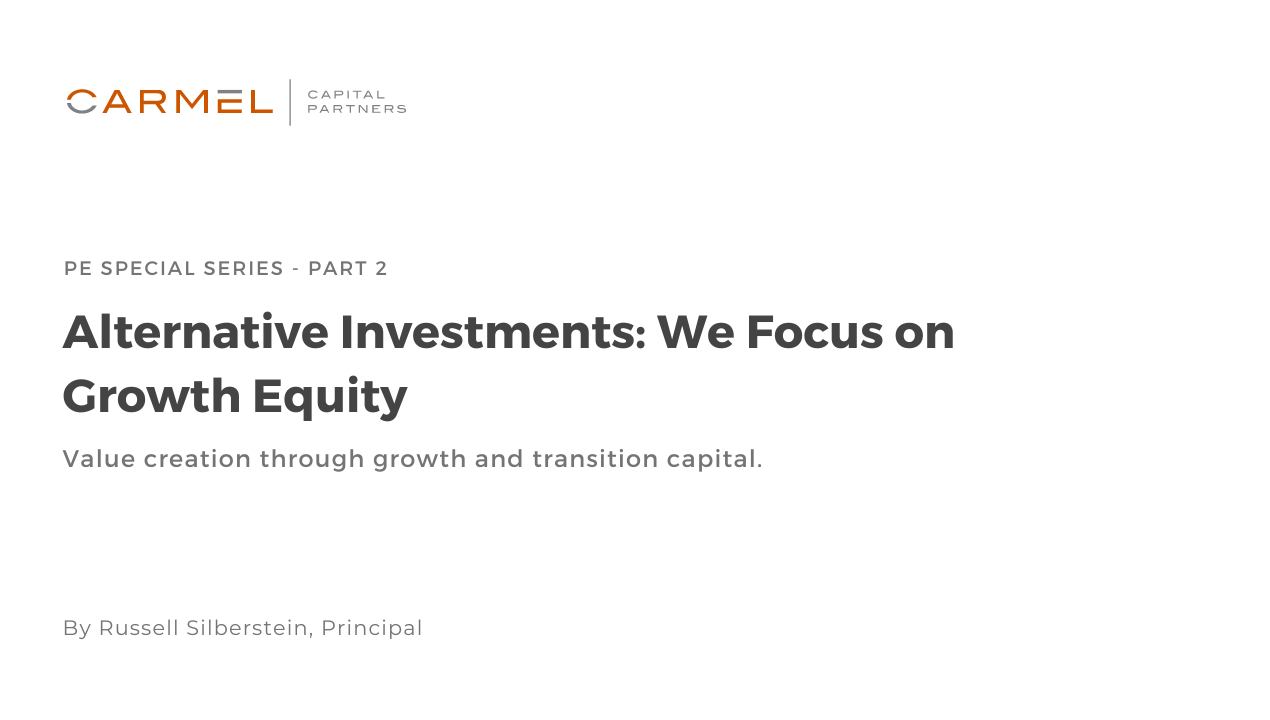Navigating Private Equity Investments
Some may argue that Private Equity investments have shown resilience during periods of high volatility; however, to maximize private equity's...
Carmel Capital Partners takes active measures to optimize our partners' investment strategies while minimizing their tax exposure, particularly California-based income tax.
Two solutions we implement for this purpose are Private Placement Life Insurance (PPLI) and Private Placement Variable Annuities (PPVA).
PPLI is a type of life insurance policy typically offered to high-net-worth individuals looking for a tax-efficient way to grow and transfer wealth. With a PPLI policy, the policyholder invests in various assets within the policy, such as stocks, bonds, and hedge funds. The policyholder can then access the policy's cash value through loans or withdrawals. Upon the policyholder's death, the policy's death benefit is paid out to the designated beneficiaries.
PPVA, on the other hand, is a type of investment product designed to provide tax-deferred growth and income. Like PPLI policies, PPVAs are not subject to many regulatory requirements that apply to publicly traded insurance companies. PPVAs can be customized to meet the unique needs of each investor, and they can offer significant tax advantages. For example, investors can use PPVAs to defer taxes on their investment gains until they withdraw money from the annuity.
While PPLI and PPVA can offer significant tax advantages, they differ meaningfully. PPLI policies are primarily designed to provide life insurance coverage, while PPVAs are mainly intended to provide investment growth and income. PPLI policies also offer greater flexibility regarding investment options, while PPVAs typically give a more limited range.
Another critical difference between PPLI and PPVA is their underlying investment structure. PPLI policies are generally invested in separate accounts managed by the policyholder or their designated investment manager. PPVAs, on the other hand, are invested in sub-accounts managed by the insurance company. While this can provide some advantages regarding investment diversification and risk management, it can also limit policyholders' flexibility and control over their investments.
In summary, PPLI and PPVA can be powerful products for high-net-worth families and entrepreneurs looking to optimize their investment strategies and minimize their tax liabilities. While they share similarities, they differ significantly and are designed to meet different needs.
As always, it is crucial to work with a knowledgeable and experienced advisor who can help you determine which strategy is best for a unique situation. If you are interested in learning more or know someone who may benefit from PPLI and PPVA—please don't hesitate to reach out.
The content is developed from sources believed to be providing accurate information. The information in this material is not intended as tax or legal advice. Please consult legal or tax professionals for specific information regarding your individual situation. The opinions expressed and material provided are for general information and should not be considered a solicitation for the purchase or sale of any security. Investment advisory services are offered through Carmel Capital Partners, an SEC Registered Investment Advisor.

Some may argue that Private Equity investments have shown resilience during periods of high volatility; however, to maximize private equity's...

Private Equity (PE) exposure plays a crucial role in a diversified portfolio, offering numerous benefits to investors and companies alike. Besides...

SAN DIEGO, November 8, 2023 (Newswire.com) - Carmel Capital Partners, a boutique private wealth management firm headquartered in San Diego, is...